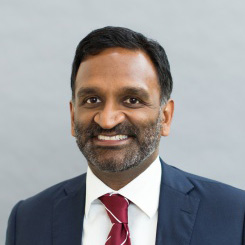In his weekly column, the National Catholic Reporter‘s John Allen notes Pope Benedict XVI’s references to the environment during the recent World Youth Day events in Australia.
Allen writes:
Although the point didn’t get much traction amid the pageantry of World Youth Day, it’s a striking fact that the most frequent social or cultural concern cited by Pope Benedict XVI in Australia was the environment. The pope talked about ecological themes seven times.
[snip]
If there was a distinctive twist to what the pope said in Australia, it was the need for reconfiguration of lifestyles, beyond and beneath policy questions. Repeatedly, Benedict warned against what he called the “folly of the consumerist mindset.”
One sign that somebody was paying attention: the Acton Institute, a Grand Rapids-based think tank with a pro-free market message, put out a press release rejecting impressions that the pope has “gone green” in the secular sense. Benedict wasn’t warning against a climate crisis, the Acton release stated, but a moral crisis.
Allen, the most reliable English-speaking journalist covering the Vatican during my time there, appears to have gotten this one wrong by misunderstanding the point of the Acton press release, which did in fact mention the Pope’s criticism of consumerism, but as a moral problem rather than an environmental one.
More seriously, Allen seems to misunderstand the Pope’s use of environmental issues. The Pope is not interested in the particular issues in themselves; rather he is more concerned with what our use or abuse of the rest of creation says about our relationship with God.
Whatever Benedict’s concerns for the environment may be, it is absolutely clear that he follows traditional Catholic doctrine by placing man at the center of all creation. Here is the key passage that follows the quotation cited by Allen from the World Youth Day welcoming address:
And there is more. What of man, the apex of God’s creation? Every day we encounter the genius of human achievement. From advances in medical sciences and the wise application of technology, to the creativity reflected in the arts, the quality and enjoyment of people’s lives in many ways are steadily rising. Among yourselves there is a readiness to take up the plentiful opportunities offered to you. Some of you excel in studies, sport, music, or dance and drama, others of you have a keen sense of social justice and ethics, and many of you take up service and voluntary work. All of us, young and old, have those moments when the innate goodness of the human person – perhaps glimpsed in the gesture of a little child or an adult’s readiness to forgive – fills us with profound joy and gratitude.
Yet such moments do not last. So again, we ponder. And we discover that not only the natural but also the social environment – the habitat we fashion for ourselves – has its scars; wounds indicating that something is amiss. Here too, in our personal lives and in our communities, we can encounter a hostility, something dangerous; a poison which threatens to corrode what is good, reshape who we are, and distort the purpose for which we have been created. Examples abound, as you yourselves know. Among the more prevalent are alcohol and drug abuse, and the exaltation of violence and sexual degradation, often presented through television and the internet as entertainment. I ask myself, could anyone standing face to face with people who actually do suffer violence and sexual exploitation “explain” that these tragedies, portrayed in virtual form, are considered merely “entertainment”?
There is also something sinister which stems from the fact that freedom and tolerance are so often separated from truth. This is fuelled by the notion, widely held today, that there are no absolute truths to guide our lives. Relativism, by indiscriminately giving value to practically everything, has made “experience” all-important. Yet, experiences, detached from any consideration of what is good or true, can lead, not to genuine freedom, but to moral or intellectual confusion, to a lowering of standards, to a loss of self-respect, and even to despair.
Benedict’s predecessor, Pope John Paul II, also prioritized the problem of “human ecology” in his encyclical Centesimus Annus:
In addition to the irrational destruction of the natural environment, we must also mention the more serious destruction of the human environment, something which is by no means receiving the attention it deserves. Although people are rightly worried — though much less than they should be — about preserving the natural habitats of the various animal species threatened with extinction, because they realize that each of these species makes its particular contribution to the balance of nature in general, too little effort is made to safeguard the moral conditions for an authentic “human ecology”. Not only has God given the earth to man, who must use it with respect for the original good purpose for which it was given to him, but man too is God’s gift to man. He must therefore respect the natural and moral structure with which he has been endowed. In this context, mention should be made of the serious problems of modern urbanization, of the need for urban planning which is concerned with how people are to live, and of the attention which should be given to a “social ecology” of work.
These passages relate what the Church actually teaches about man and the environment. Let’s hope that Allen’s NCR cover story takes note of this teaching as a whole.

